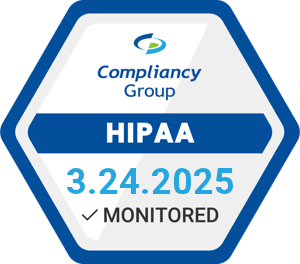March 25, 2022

While digital therapeutics (DTx) companies are extremely optimistic about the promise of software-based interventions to prevent and treat diseases, they are still navigating unchartered territories around the best practices for clinical research, including patient recruitment and retention, quality of data, high costs, and uncertainty around regulatory guidelines.
At the same time, clinical trial models are rapidly evolving, adding further complexities. But one thing DTx companies do agree on is that the decentralized clinical trial (DCT) model is key to overcoming their biggest hurdles and improving the entire clinical research process.
A Patient-Centric Approach
Patient retention and engagement have long been challenges in clinical research, but DCTs have had a uniquely positive impact on DTx studies. DCTs make trials more accessible to participants who live far away from study centers. Opening studies up to more participants, optimizes the patient pool and reduces the need to over-enroll based on anticipated attrition or drop-out to improve cost efficiency.
Dr. Mike Aratow, Co-founder and Chief Medical Officer of Ellipsis Health, a DTx company that developed the first voice vital sign to quantify and manage depression and anxiety, explains, “A decentralized model not only aids patient recruitment because it removes many of the burdens associated with traditional trials, but it also makes it easier to reach underrepresented groups and those from a wider geographic landscape, providing real-world evidence and ecological validity. In traditional research, a significant amount of the medical data can’t be reproduced due to issues around patient retention and patient participation.”
Feel Therapeutics develops digital biomarkers and therapeutics for mental health using a proprietary wrist-worn wearable device. It monitors various physiological signals to extract insights on patients’ psychological and physical health. According to Feel CEO George Eleftheriou, “DCTs help optimize patient recruitment and improve engagement and retention. Wearable and digital technologies remotely measure endpoints while engaging participants in an unprecedented way and which naturally aligns with digital therapeutics that are intended to integrate into patients’ everyday lives. It is indicative that participants in our digital programs use our app for over 55 minutes per week.”
Reduced Costs
In 2020, Insider Intelligence predicted the global DTx market would hit $9 billion by 2025, but a year later sharply upped that forecast to $56 billion.1 Despite this market growth, the DTx industry is still in its infancy with most companies considered startups with modest resources. Cost efficiency is central to their success—and another reason why a DCT model complements the DTx business strategy.
DCTs save costs, in part, by saving time. For instance, the single biggest time drain in clinical trials is patient recruitment, which can take up to 30% to 40% of the duration of the entire trial process. By streamlining this process using digital tools and expanding the geographic area for recruitment, DCTs have faster recruitment, and require less staffing and infrastructure. DCTs allow researchers to customize DTx trials based on exact needs, patients, and commercialization strategy.
Additionally, the technology needed to run a DTx trial is materially different from the technology for traditional trials. Much of the software needed for a DTx trial is already baked into the DTx app being studied, so many of the robust components required for traditional clinical trials involving prescription drugs are not needed. DTx companies can save substantially—reducing the costs by a factor of 20 or more—by cherry-picking just the technology needed to run the DCT.
New data backs up the value of DCTs. According to a 2022 study by the Tufts Center for the Study of Drug Development, which compared published benchmarks on trial cycle times and costs with data from more than 150 DCTs conducted by trial software firm Medable, decentralized Phase 2 studies are completed one to three months faster than traditional trials and the time savings yield a net benefit that is up to five times greater than the upfront investment required. Decentralized Phase 3 trials with similar time savings yielded a net benefit that is up to 14 times greater the upfront investment.2
Improved Data Quality
Decentralized trials enable DTx companies to collect real-world data direct from patients where they are most comfortable, which has a quantifiable impact on data quality.
Dr. Erik Won, President and Chief Medical Officer of Wave Neuroscience, a DTx company that specializes in treating brain disorders, explained, “DCTs increase the quality of data by minimizing the Hawthorne Effect—a reactivity in which individuals modify an aspect of their behavior in response to their awareness of being observed, also known as ‘white coat syndrome’—because patients are in their home environment. With a decentralized trial, we get the best of both worlds. We can use other mechanisms to ensure that patients are following protocols while ensuring compliance. For instance, we record EEGs using wearables and ask patients to complete simple online surveys.”
DCTs also enable researchers to capture data and endpoints directly within the digital therapeutic itself for seamless data capture and less potential for “lost” information.
“DCTs enable us to collect passive, continuous, and objective data from users 24/7/365 and move from episodic patient-reported outcomes to continuous data collection,” added Feel’s Eleftheriou. “This rich data provides real-world evidence and allows us to explore novel biomarkers or digital endpoints in neuroscience and other chronic conditions with a high prevalence of mental health comorbidities, such as multiple sclerosis, certain cancers, and cardiac problems.”
Regulatory Approval
DTx companies operate in a nebulous regulatory environment, even as the Food and Drug Administration (FDA) works to clarify requirements. For example, the FDA has demonstrated its commitment to supporting digital health technologies recently through the publication of multiple relevant guidance documents as well as the founding of the Digital Health Center of Excellence (DHCoE) in the fall of 2020.
Yet, the regulatory landscape is complex, evolving quickly and differently in each country. Regulatory approval is not always required to go to market, disincentivizing studies. Many DTx manufacturers are left to make decisions on their own on whether they choose to seek regulatory approval, depending on their commercialization strategy and often take a bifurcated approach—seeking FDA approval for one variation of their product and not for another.
Wave Neurosciences follows FDA guidelines for conventional trials while making adaptations in non-FDA studies to maintain regulatory compliance. These “bridge” studies are often smaller, faster, less expensive and designed to gather enough validated data to determine if taking the next step to an FDA-approval study makes sense. In these cases, especially, a decentralized model makes it much easier and faster to stand up a “bridge” trial for DTx companies looking to determine what the next best steps should be for their product and commercialization strategy.
The Perfect Pairing
Fundamentally, DTx products are software, so there are no physical logistics—no shipping, storing, chain of control, cold storage, or biohazards plus endpoints can be captured directly within the DTx application, making DTx studies ideally suited for the digitally enabled decentralized model.
Even so, much is still to be learned in the emerging DTx market. While COVID may have forced researchers to lean into DCTs and the pandemic continues fueling a growing need for digital therapeutics, this perfect pairing will only benefit the industry and society a whole.
References:
1. Insider Intelligence, “DTx Trends and Companies to Watch in the Growing Digital Health Industry,” by Staff (July 29, 2021). See full resource here.
2. FierceBiotech, “Not Just for a Pandemic: DCTs Pay Off Financially, a Study Shows,” by Gareth Macdonald (January 12, 2022). See full resource here.










